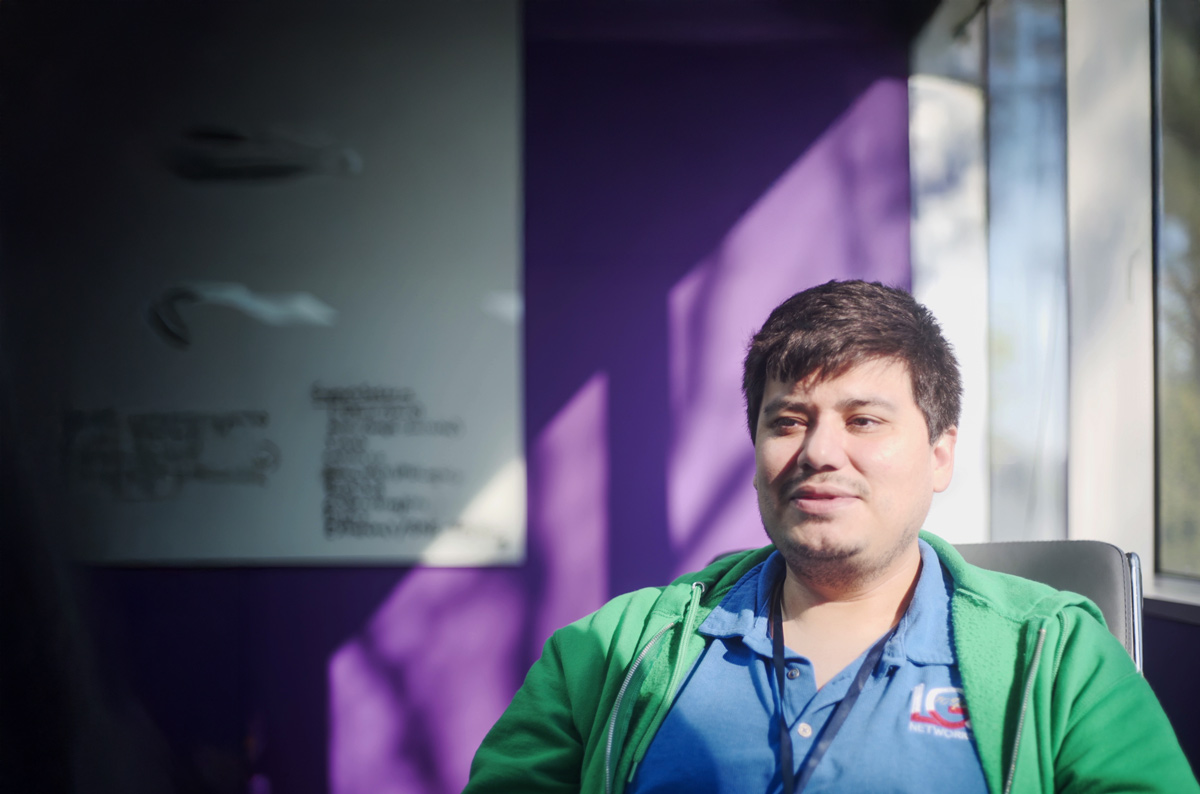To celebrate IT Professionals Day, we sat down with one of our own help desk team members to get a behind-the-scenes look at life in IT. From day-to-day responsibilities to career insights, this interview offers a candid perspective on the realities of the job—and some valuable advice for anyone considering a future in tech.
Elena: Thank you for taking the time for this interview with us. We just wanted to go over some questions about your profession in IT and get to know more about you.
To start off, what are some of the misconceptions that people have about IT? Do you have any examples?
Leon: Many people think we’re hackers or something. Another one would be that we’re always doing IT, but I think we have a lot of different stuff that we enjoy doing.
Elena: So, can you walk us through your approach to diagnosing and resolving complex IT problems?
Leon: It depends on whether it’s a technology I’m already familiar with or not. So if it’s a technology I’m aware of, I would start researching some past documents that I have used in the past before. If it’s something new, I would start reading, familiarizing myself, getting a broad overview and then narrowing it down from there. So it just depends on whether I’m familiar with the technology or not
Elena: What strategies do you use to ensure minimal downtime for employees when troubleshooting issues?
Leon: Trying to find a resolution, and then if the resolution is more complicated, it would be simpler to go another route. I usually try to go the fastest way. For instance, recreating a user profile is a scenario that takes a lot of work, but sometimes if you can’t find a solution then you have to recreate the profile. I wouldn’t want to waste their time by looking for another solution when I could just do that or reformatting a computer. There’s a tradeoff of how long it takes versus how long it takes to solve the issue and the users, or station like some users have. Like applications where you can’t reset their machines, so it’s used by a user basis.
Elena: Okay, so you sort of play by ear.
Leon: Yeah.
Elena: What are some of the biggest cybersecurity risks that you see employees unknowingly making?
Leon: For cybersecurity, there’s a lot of training that needs to happen. As far as obvious things like phishing, recognizing a spam email quickly, things like that – I think it’s important training your employees very often. There’s new methods that come up like multifactor, something that is used to prevent hackers, but now they’re looking to circumvent in other ways.
Elena: Have you seen any new tactics such as the use of AI?
Leon: I don’t know – I’m sure there’s methods, but I wouldn’t know.
Elena: I think the technology might still be very new, so maybe we just haven’t seen too much of it yet. What’s one emerging technology or trend that you think will have a major impact on IT support in the next few years?
Leon: I don’t think it’s anything new, but I think fiber optics are going to be more prevalent because fiber can outperform the internet. Also, it takes up very little space.
Elena: How has remote work changed the way IT support is handled, and what challenges do you think it’s introduced?
Leon: I think the challenges are people not seeing a friendly face. I think people like to be reassured and see someone to know that hey, it’s going to be okay. But I think it’s really helped people get their solutions done a lot faster.
Elena: Have you ever encountered a situation where a quick fix wasn’t the best long-term solution, and how did you handle it?
Leon: Usually, even though something can be a quick fix, I usually try to keep the ticket open just because I know it will fall on someone else’s shoulders or eventually come back to me.
Joven: Do you have any personal hobbies?
Leon: I like to play music, listen to music, and play games. I like to think of IT as a hobby. I enjoy reading, I play dungeons and dragons sometimes depending on the season. I just like gaming in any way whether it be a slots, video game, casino, board game, or whatever is interesting.
Joven: What’s your favorite music genre that you like to either listen to or play on the guitar?
Leon: I’m pretty good at rock as far as history goes and knowing bands.
Joven: Any specific period?
Leon: I’d say like the 2000s, as what I most relate to. But I like indie rock and a lot of bands that people have never heard of.
Joven: Do you have any advice for someone who is trying to learn music theory? Someone like me, for instance?
Leon: I’d say the best approach is to read very simple books that way you have some knowledge or grasp, then you can bring it to someone musical and they can clarify or explain the things that you’re reading – just reinforcement of relearning the same thing over and over again. And YouTube videos.
Elena: What advice would you give to someone looking to start a career in IT support?
Leon: I would say read for sure and take a hands on approach. I think reading gives you a solid foundation because there’s stuff in the real world that’s not going to work like it does in the books, but there’s things in a book that you’ll need to know in order to understand why things work the way it does. So I think crossing those two together is an important start for anyone starting at IT.
Joven: Thank you so much.
Elena: Thank you Leon! We appreciate your time with us today.







